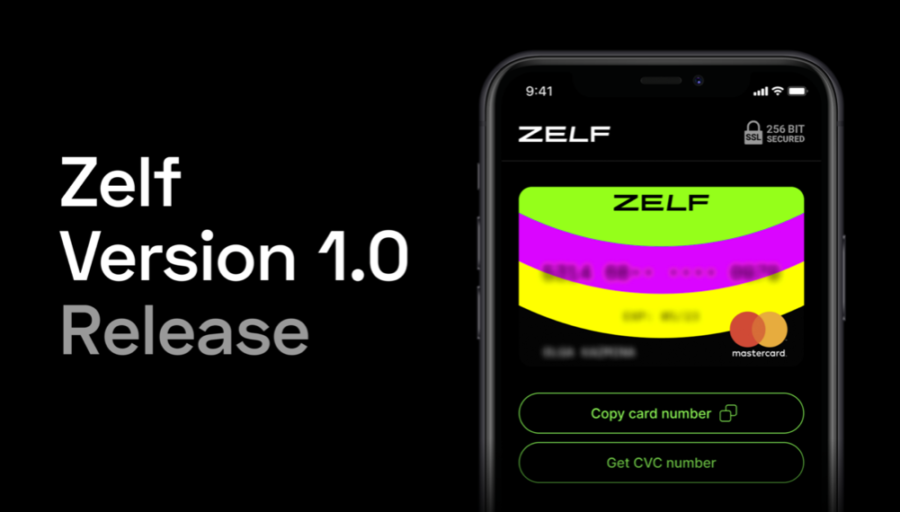
The Cardless Neobank Zelf
It’s not unusual to see a neobank that doesn’t have any branch offices these days. But now there’s a neobank that doesn’t have an app. It doesn’t offer plastic or metal debit cards either. Zelf is a fully virtual neobank that operates through messenger apps. It issues virtual debit cards to its customers instead of physical cards. And it provides other banking services through its AI chatbot that communicates through multiple messaging platforms. Here are a few ways that Zelf is different from other neobanks.
Virtual Cards Reduce Environmental Impact
At first, Zelf’s decision to not issue a debit card might sound like a gimmick. Lots of neobanks have issued debit cards recently so the press won’t get very excited if another one comes out. It’s more unusual to see a bank that doesn’t issue debit cards. But the neobank has valid arguments against issuing debit cards. One of them is that this neobank is claiming that it’s more environmentally friendly than other banks. The Zelf founder even criticized neobanks that make their debit cards out of recycled ocean plastic to reduce their impact on the environment. And he feels the same way about neobanks that make their debit cards out of wood.
Zelf doesn’t issue physical cards at all. This not only means that it’s not using plastic or metal to make the cards, it also doesn’t use paper envelopes to mail them out. Fully virtual cards also save the bank money because it doesn’t incur the costs of issuing physical cards. And Zelf can expand into other countries more easily because it doesn’t need to mail out the cards when it enters a new market. The downside of the virtual cards is that if customers can’t use their phones to make payments at a business they’ll need to carry around some cash.
Low-Income Customers Can Bank Without Modern Phones
There’s another benefit of operating solely through a messenger app instead of an iPhone or Android app. You don’t need to have the latest smartphone to use this neobank’s services. You only need a phone that’s new enough to use the messenger app software. So the app might still work on very old phones. It would also be useful for people who intentionally use very old phones because they provide more privacy than smartphones, although that’s a niche market.
I just checked the Apple app store and it’s normal for online banking apps to require iOS 11.0. That’s a 64-bit operating system that can’t be installed on any smartphone older than an iPhone 5S. That phone came out in 2013, eight years ago, so most people will have newer phones than that. And it’s also normal for banking apps to use about 50 MB of space, but again, most modern smartphones have much more storage than that. Messenger banking could still be very useful for customers who can’t afford new smartphones though.
QR Codes Simplify Invoicing for Freelancers
This feature could be very useful. As a writer, there are many ways to accept payments from clients and many of these services charge fees. Zelf users can tell the app to create a custom QR code that the client can scan to send a payment. It’s unclear what the neobank charges for this service and right now Zelf only operates in Europe so it’s unclear how the payments would work in the US.
But if this service functions like a peer-to-peer money transfer it would be much less expensive to send money this way than using a credit card. Peer-to-peer money transfers can’t be reversed though, so there is risk involved with using them.
Opening a Zelf Account Doesn’t Require KYC Documents
Zelf makes it very easy to open new bank accounts. If you tell the Zelf chatbot your name and your phone number, that’s enough information for the neobank to set up an account for you. The bank doesn’t ask for standard know-your-customer (KYC) documents until you deposit more than 150 euros in your account. Normally, banks have to ask for these documents up front. Zelf can set up accounts this way because of European Union regulations so this service might not be available if the neobank expands into other countries.
You can deposit money using either a debit card or a direct transfer from a bank account. It’s unclear whether you have to connect another bank account to the platform to sign up for an account. It may be possible to load the account with a prepaid gift card. Signing up for Zelf would be less appealing if you needed to have another bank account first. At that point, Zelf would need to demonstrate that its service was better than the service provided by your existing bank. Many banks have AI chatbots now, so the freelancer tools might be its best option.
Conclusion
Zelf’s promoting itself as an appless and cardless neobank but its main competitive advantage might be its freelancer tools. It’s much easier to ask a client to scan a QR code than it is to request payment through other platforms. And it’s possible that this payment system may come with lower fees than other standard payment methods. It would also be much faster to accept a payment this way. It also sounds like the AI chatbot classifies the transaction automatically when it provides the QR code.
So this neobank could be very useful for gig workers and other freelancers. And Zelf might come up with other unique payment methods that aren’t available at other banks because it can’t rely on standard features that other neobanks provide through their apps. While this app’s not available in the US yet, it may launch with features that US neobanks don’t have if it is released here here.